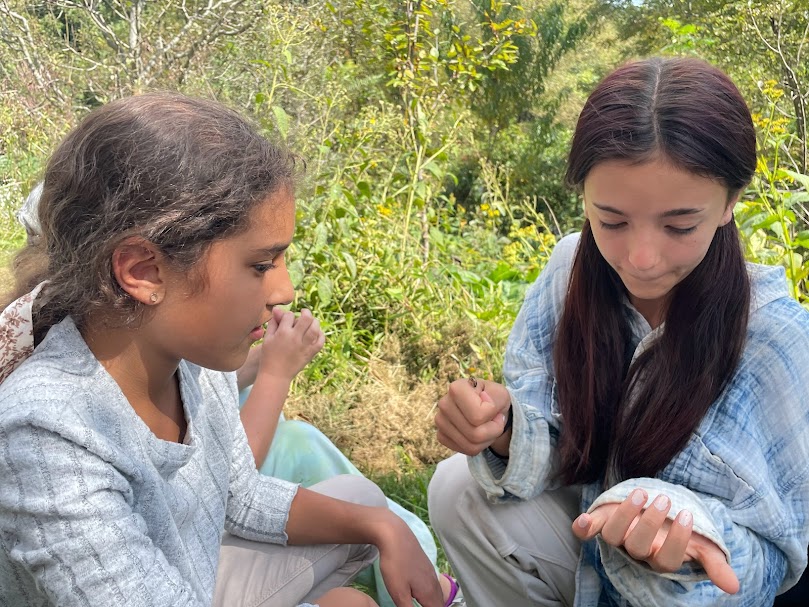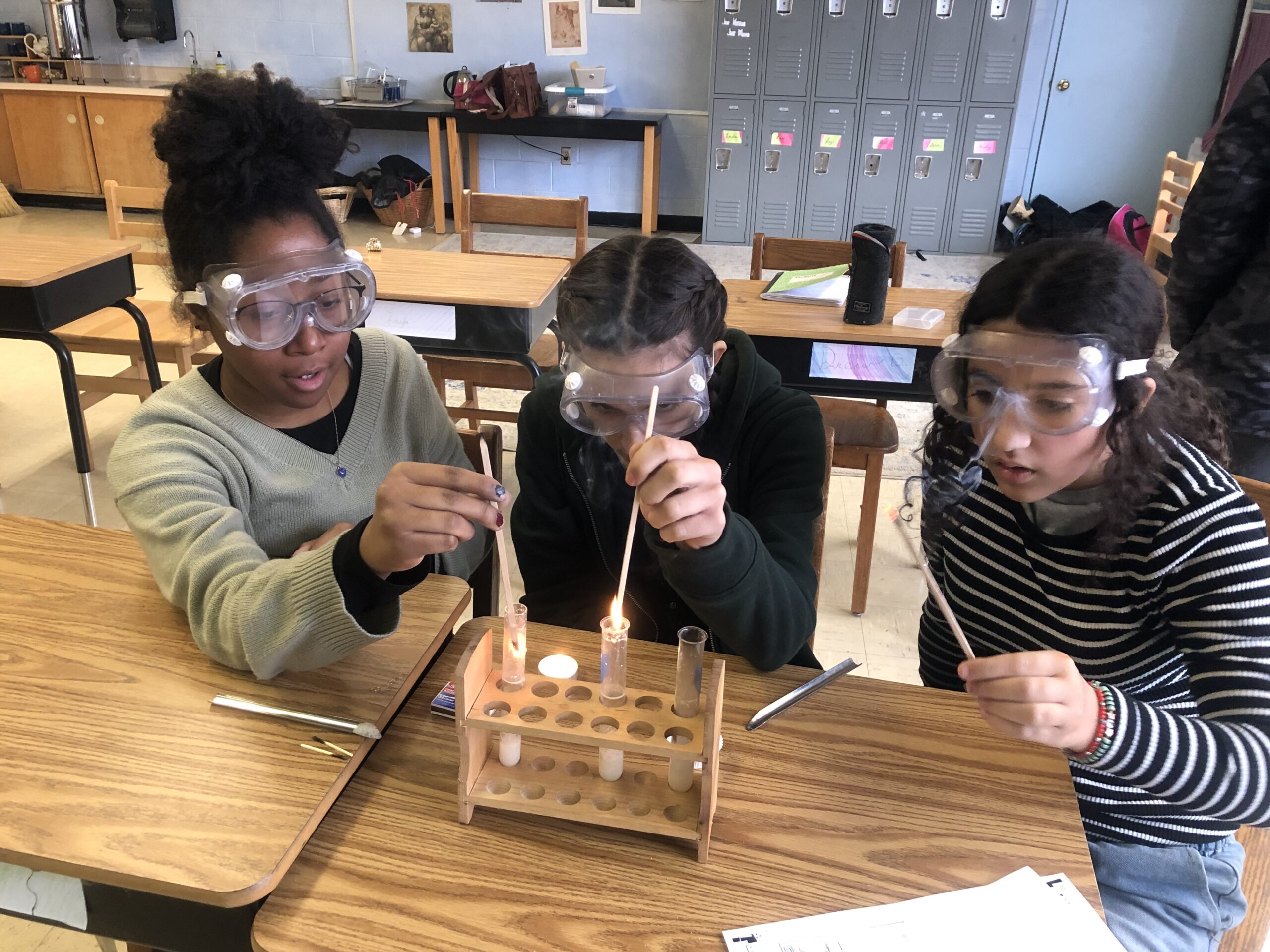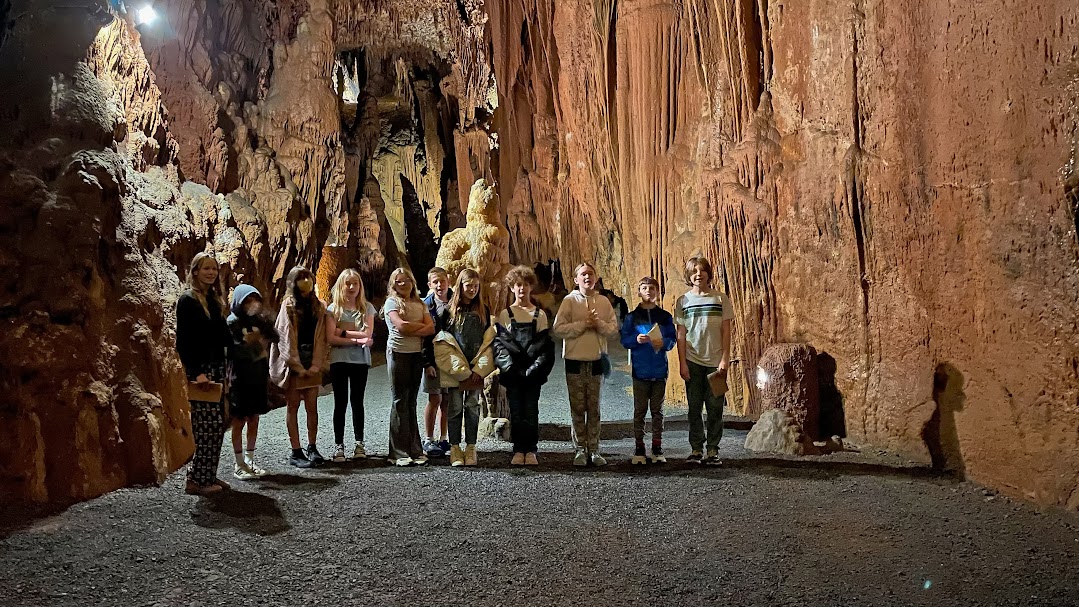The Power of Hands-On Science Education
Research shows that hands-on learning is extremely effective for students of all ages, particularly when it comes to science education. Waldorf Education employs an experiential approach in all subjects, especially in science. Students learn through observation and experimentation, rather than just memorizing formulas. This engages the senses and encourages critical thinking and problem-solving, which fosters wonder, curiosity, and a deeper understanding of scientific phenomena.

A study from the Canadian Center of Science and Education provides data to support that there is a significant impact on students’ academic performance and engagement when teachers take a hands-on approach to science and math education. “The study showed positive improvement on both the students’ performance and participation on mathematics and basic science activities and willingness on the part of the teachers to use hands-on-approach in communicating mathematical and scientific concepts to their students.”
The way students engage with and internalize scientific concepts can vary significantly depending on the teaching methodologies employed. Among these, hands-on science education has emerged as a particularly effective approach, resonating with students of all ages. This method, which emphasizes learning through doing, is not only about understanding scientific theories but experiencing them. Groundbreaking research supports the efficacy of this experiential approach, especially as seen in models like Waldorf Education, which prioritizes observation, experimentation, and the holistic engagement of a student’s senses in the learning process.
The Impact of Hands-On Learning
The essence of hands-on learning in science education lies in its ability to transform abstract concepts into tangible experiences. By engaging directly with materials and experiments, students move beyond passive absorption of information to active exploration of the world around them. This method has been shown to significantly enhance comprehension and retention of scientific knowledge. Research indicates that students who participate in hands-on science activities demonstrate a better understanding of scientific processes and concepts compared to those who rely solely on textbook learning.
At RWS this is evident across all grade levels, as teachers incorporate field trips, observation in nature, and exploration into core academics. Laboratory sciences in the middle school years expose Waldorf students to chemistry, physics, anatomy, physiology, astronomy, geology, geometry, and algebra in an incredibly tactile way. Waldorf education emphasizes the importance of a “Whole to parts” methodology. This means we spark the students’ curiosity and interest with observing the phenomena (such as a chemical reaction) and then take time to deduce what was seen and provide vocabulary to describe the experience.


Beyond Memorization: Engaging the Senses
Traditional education models often emphasize memorization of formulas and facts, an approach that can render learning static and uninspiring. In contrast, hands-on science education, as practiced in Waldorf schools and similar institutions, encourages learners to engage all their senses. This multisensory engagement is crucial for deep learning. It not only aids in the retention of information but also fosters a connection between the learner and the subject matter, making science both relevant and exciting.
Through the creation of main lesson books, students recreate the experiences they’ve participated in through drawings, writings, and further research.
Fostering Critical Thinking and Problem-Solving
One of the most significant benefits of hands-on science education is its role in developing critical thinking and problem-solving skills. By tackling experiments and observing outcomes firsthand, students learn to hypothesize, test, and revise their understanding based on empirical evidence. This process is fundamental to the scientific method itself and cultivates a mindset that is curious, analytical, and open to new ideas. Such skills are invaluable, not just in scientific pursuits but in everyday life and future careers.
Cultivating Wonder and Curiosity
Perhaps one of the most beautiful aspects of hands-on science education is its ability to inspire wonder and curiosity. Waldorf Education, in particular, strives to awaken a sense of awe and discovery in students. By experiencing the magic of science firsthand—whether it’s the transformation of caterpillars into butterflies or the chemistry of baking bread—learners develop a profound appreciation for the natural world and the underlying principles that govern it. This sense of wonder is the bedrock of lifelong learning and a passion for inquiry.
A Deeper Understanding of Scientific Phenomena
Through hands-on learning, students gain a deeper, more nuanced understanding of scientific phenomena. This approach demystifies science, showing it not as a collection of isolated facts but as a dynamic and interconnected web of knowledge. As students explore and experiment, they learn to view scientific concepts through a holistic lens, seeing the connections between what they learn in class and the world around them.
The power of hands-on science education lies in its ability to transform passive knowledge acquisition into an active, engaging process that stimulates curiosity, fosters critical thinking, and nurtures a deep-seated passion for learning. As research continues to underscore the effectiveness of this approach, educational models like Waldorf Education stand out as beacons of how experiential learning can shape not only how students understand science but how they perceive the world. In the end, the goal of education is not just to impart knowledge but to inspire a lifelong journey of discovery, and hands-on science education is a vital step on that journey.
Want to Learn More?
We would love for you to explore the Waldorf approach! Sign up for a tour, or watch our school video where students talk about life at Richmond Waldorf School. Get to know us and see if RWS is right for your child.
At Richmond Waldorf School, we recognize that our student’s physical, social, and emotional well-being are a key part of their ability to learn and thrive. We look forward to meeting you and sharing more information about Waldorf education.
Valerie Hogan
Enrollment & Marketing Administrator
| 804-377-8024 ext 3
Richmond Waldorf School is a non-profit, private school in Richmond, Virginia offering Waldorf education for grades Pre-K – 8th grade.

